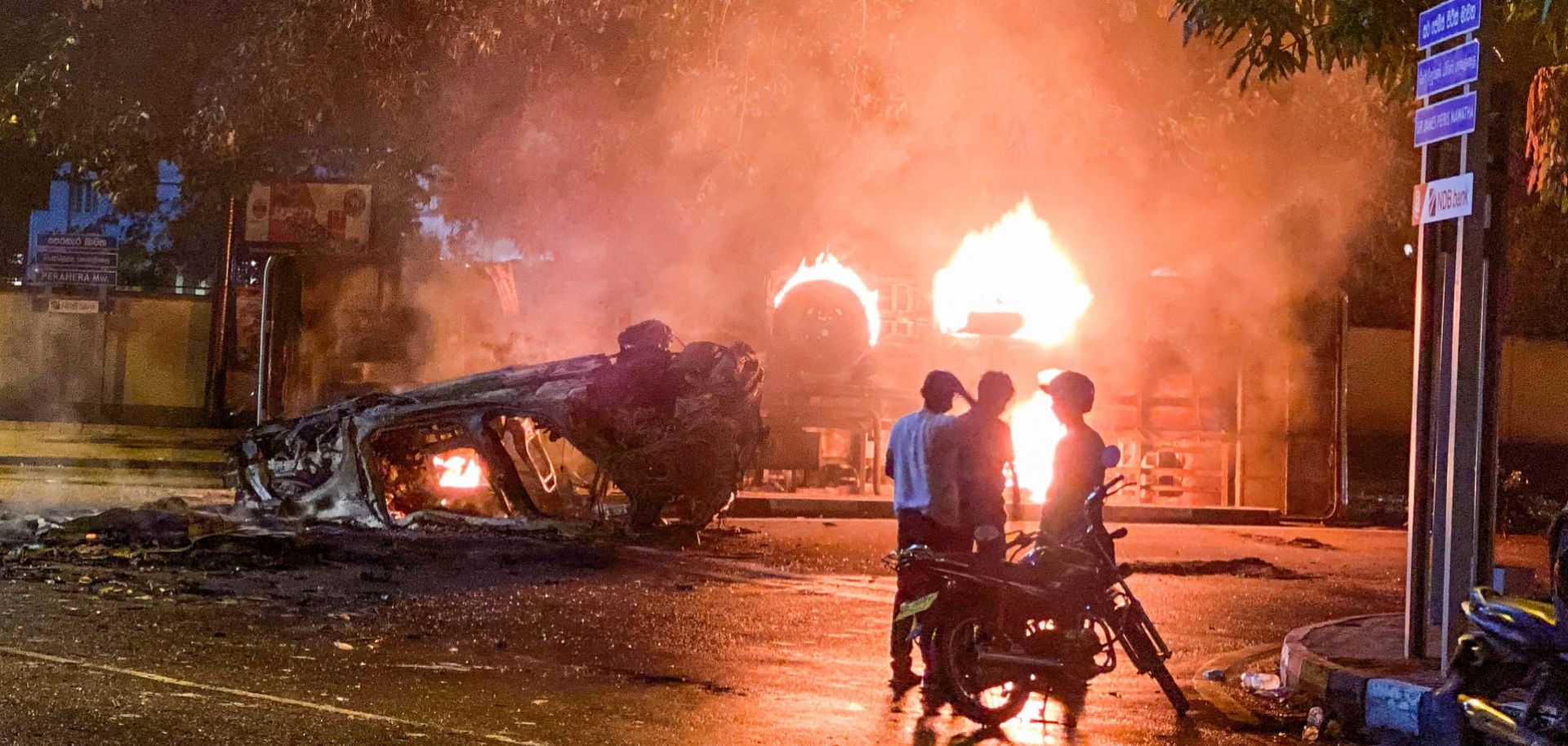Momentum garnered by the prime minister's forced resignation -- combined with increasingly violent clashes with police, military and pro-government supporters -- will likely see the mass protests against Sri Lankan President Gotabaya Rajapaksa intensify in the coming days, opening the door to multiple outcomes with social and political implications for the South Asian country. On May 9, the popular movement against the Sri Lankan government (and, in particular, President Rajapaksa) took a significantly violent turn. Pro- and anti-government groups clashed on the streets of Colombo while an anti-government mob set ablaze the Rajapaksa family's ancestral house, which was situated among the homes of dozens of other pro-Rajapaksa legislators. The events marked the bloodiest day of political unrest in the country since the current wave of demonstrations against the Sri Lankan government began four weeks ago....

